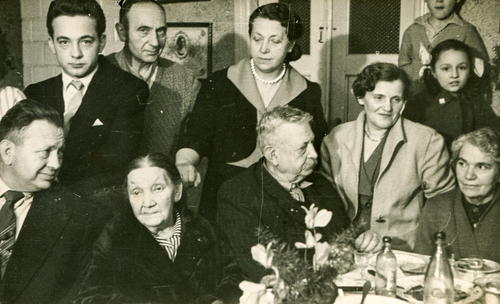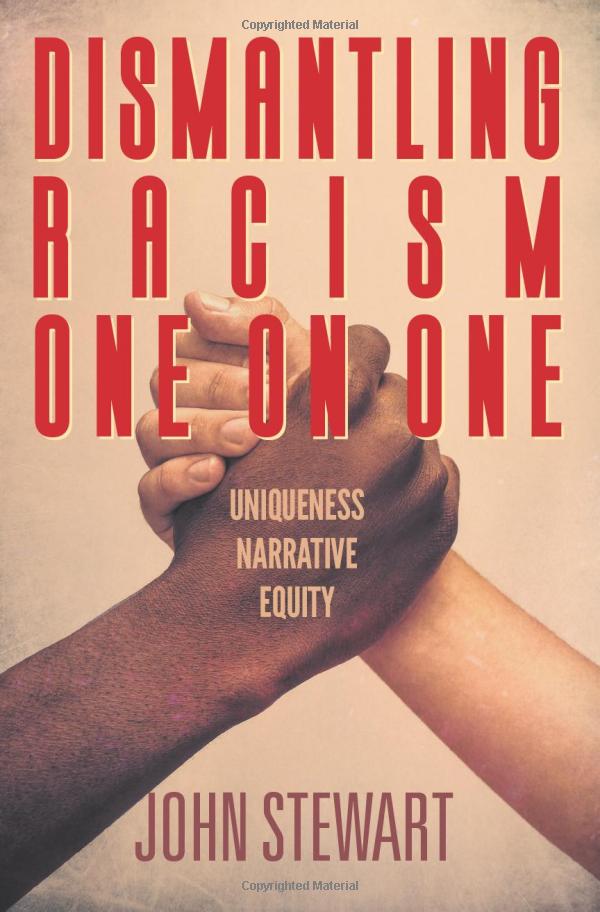
Most of us think of our favorite holidays as times for the family to get together in celebration, love, and harmony. But in many U.S. households, “just beneath the refined veneer of the best dishes and silverware, some politically polarized family members will be sitting at the table, just lying in wait for a perfect moment between the turkey and the pumpkin pie to erupt and begin a political debate.”
And the challenge extends outside families to times with friends and even strangers. A heated political tirade has spoiled many otherwise-pleasant lunches, car rides, or coffee breaks with colleagues or friends. What can a skilled communicator do? Are moments that matter possible in political conversations?
KEEPING IT REAL
The reality is, not very often. Most people with strong political agendas do not want to have a conversation with somebody who has a different view. Almost all of Rush Limbaugh’s listeners share his views, and the same is true of those who watch Bill Maher. This means that the vast majority of conversations between individuals with opposing political views are going to be impersonal, not personal.
And some can be different. But if you know your political views differ significantly from your conversation partner’s, and you still want to talk, it will take extra effort to have a graceful and productive personal conversation. Everyone involved will need to work on at least three elements:
Metacommunicate
Ask your conversation partner whether she wants to explore political ideas or mainly to express her political view. Ask out of curiosity, not challenge. You might say something like, “I’d like to listen to your ideas about _____ and have you listen and respond to mine. I’ll bet we can both learn something. And, I know that, at least at the start, we probably disagree. So if we want to avoid just getting in an argument, we’ll need to figure out how we want to talk with each other and what we want to get out of this. What would you like to have happen?”
The other person may well be surprised by your question, and it’s possible they’ll respond with angry silence. Your question also might prompt a drastic change of topic, or worse. But if you make it clear that you’re not interested in being part of a cheering section for ideas that you disagree with, and you are genuinely interested in learning from each other, you’ve given the other person the opportunity to help decide what happens next.
Understanding not Persuasion
The second important step is about expectations. Political advocates who shoot from the lip seem often to expect that their tirade will persuade their conversation partner over to their side. This almost never happens. People’s political views are anchored in their experiences and developed over time; they seldom change because of one, two, or even several conversations.
Under some conditions, though, conversations between political opponents can generate enhanced understanding. Whenever you listen carefully to a reflective person you disagree with, it’s likely that you’ll learn something. So, if both parties are open to this happening, a political conversation can be productive. See if you can agree with each other that you will both work toward understanding not persuading.
Ground Rules
These steps may be enough to get your conversation going productively. If you want to increase your chances for success even more, though, try spending a little time on ground rules. For example, the leaders of the Pacific Educational Group facilitate what they call “courageous conversations about race.” They have worked successfully with school districts all over the U.S. in empowering parents, teachers, students, and administrators to tackle some of the hottest political topics. This group begins by asking participants to commit to four agreements: Stay engaged, Speak your truth, Experience Discomfort, and Expect and accept non-closure.
Stay engaged means committing to remain morally, emotionally, intellectually and socially involved in the dialogue. It means not to let your heart and mind “check out” of the conversation while leaving your body in place. This can be especially difficult in conversations about race, because many White Americans have been conditioned to avoid the topic, while many people of color converse about race every day, but only among themselves. Most people have also been taught that it’s not polite to talk about “politics, religion, or sex.” So the cultural cards are stacked against you. But if the people in the conversation can commit to staying engaged, they can help make the conversation productive.
Speak your truth means being honest about your thoughts, feelings, and opinions and not just saying what you believe others want to hear. People often don’t speak their truth about a political topic because they’re afraid of offending, appearing angry, or sounding ignorant. This problem is worsened, because those who identify with the dominant political culture—whether it’s Jewish, heterosexual, White, male, youth-oriented, educated, wealthy, or poor—will have a measure of unearned power that supports the opinions they express. This makes it more difficult for those outside this power circle to speak their truth.
It’s also important to remember that, almost every thoughtful person’s “truth” about a political issue includes some questions, reservations, and recognitions that make their beliefs more than a simplistic all-or-nothing stance. “I understand that what I’m proposing could be very expensive, and I still believe it’s worth the investment.”
Speaking your truth often requires courage. For example, in a mainly pro-life group, it can be challenging for a man who sees both sides of the issue to speak his truth about abortion. Assume that he has a sister who became pregnant from a date-rape that was never reported. He recalls vividly how anguished she was about bringing a child into a single-parent world where there was little money and less social support. He also remembers how frightened she was about the uncertainty of adoption and the guilt she’d feel about “giving up” her child. Although he personally dislikes the thought of abortion, he knows that there are valid reasons why it’s legal and available. He’s not sure he wants to trust others with this personal information, and yet he doesn’t want his silence to be taken as agreement. It will take considerable courage to speak even a general version of his truth in this situation.
When participants agree to this ground rule, they are also committing to suffer the pain of hearing some personal truths they would rather not hear. So this is a ground rule about both what you say and how you listen. You may believe that the other person is immoral, overreacting, distorting reality, blaming the victims, or expecting perfection. You may not understand why they can’t just cut some slack or have a thicker skin. When hearing another’s truth, though, your challenge is to listen for its meaning, not to discount it, no matter how different it is from your experience. And you should be able to expect the same from them as you speak your truth.
Experience discomfort follows naturally. This ground rule acknowledges that, because politics is generally so polarized in our society, serious political conversations almost always create discomfort for participants. Many people who dislike conflict want to smooth the situation by emphasizing how “people are basically all alike.” But as Chapter 2 of U&ME Communicating in Moments that Matter clarifies, the first human reality is that each of us is unique, and political commitments are part of what make us that way. The most highly-functioning human groups—families, work teams, committees, friendship circles, clubs, and organizations—affirm their diversity and exploit differences to enrich the group.
When you genuinely don’t want to experience this discomfort, don’t engage in the political conversation. This is one reason for the metacommunication you start with. Fruitful conversations about real differences can lead to real growth. This won’t happen, though, until people feel both courageous enough and safe enough to experience some discomfort.
Expect and accept non-closure means that your goal for the conversation should not be, as I mentioned, to persuade the other person to your belief, or to solve the political problem you’re discussing. The point of the talk is the understanding, acceptance, and respect that, under the best conditions, the talk itself can produce. In 2001, the Boston Globe reported on a 6-year-long dialogue that had been occurring between 3 pro-life and 3 pro-choice leaders. The women began meeting regularly and secretly after a bombing at an abortion clinic. They were guided by a facilitator who helped them follow several ground rules like the ones I just discussed. After over more than 75 months of dialogue, the women wrote, in a consensus article, that none of them had changed her position. And yet, despite their serious discomforts and continued disagreements, they continued to meet
“because when we face our opponent, we see her dignity and goodness. Embracing this apparent contradiction stretches us spiritually. We’ve experienced something radical and life-altering that we describe in nonpolitical terms: ”the mystery of love,” ”holy ground,” or simply, ”mysterious.”
We continue because we are stretched intellectually, as well. This has been a rare opportunity to engage in sustained, candid conversations about serious moral disagreements. It has made our thinking sharper and our language more precise.
We hope, too, that we have become wiser and more effective leaders. We are more knowledgeable about our political opponents. We have learned to avoid being overreactive and disparaging to the other side and to focus instead on affirming our respective causes.”
This is what mindful and reflective political conversation between opponents can potentially produce. And it won’t happen without commitment and hard work by everyone involved. It is not easy to make political talk as personal as possible.


